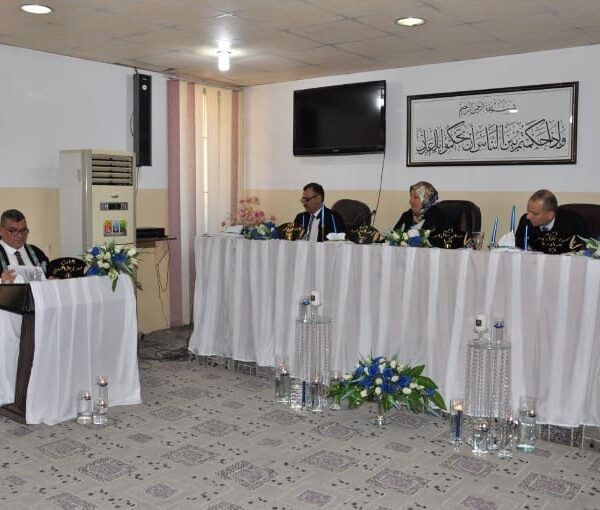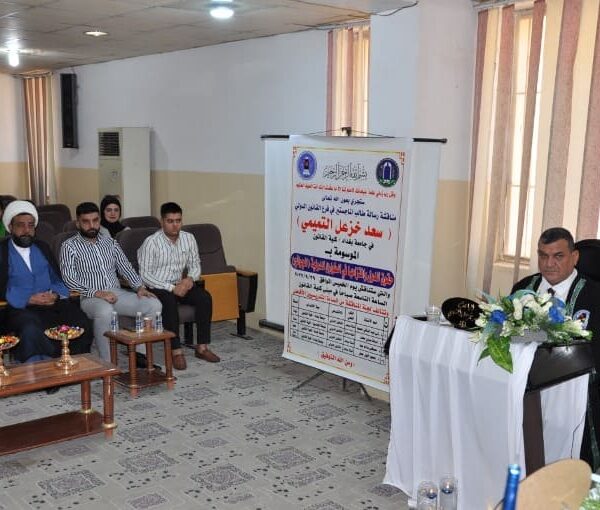The College of Law at the University of Baghdad discussed a master’s thesis in the international law branch of student Saad Khazal, tagged with (States’ Rights and Obligations in International Emergencies “Pandemics”) on Thursday 29/9/2022 in the model courtroom in the college.
The discussion committee consisted of Assistant Professor Dr. Lama Abdel-Baqi Mahmoud as Chairman, Assistant Professor Dr. Osama Sabri Mohamed as a member, Assistant Professor Dr. Mustafa Salem Abd as a member, and Prof. Mahmoud Khalil Jaafar as a member and supervisor.
The thesis aims to define the rights and obligations of countries in light of the international emergency, especially the health emergency represented today by the COVID-19 pandemic, which invaded the world without warning, which led to the world living in complete chaos. For this epidemic, and its impact that threatens human life and stops the movement of the whole world, so the urgent need for such a study was to show and stand on what countries have reached in terms of preparations for this epidemic and to correct and correct the course of the lagging countries in fighting this epidemic, and then provide a global database for the future , represented in the strategy that countries should undertake to limit and control the spread of the epidemic.
The thesis also included three chapters, the first of which dealt with the concept of the pandemic in light of an international emergency, and the second chapter dealt with the rights and obligations of states under the constitution of the World Health Organization in the face of international emergencies (pandemics) and their impact on human rights.
As for the third chapter, it dealt with the responsibility and obligations of states and international organizations in the face of international emergencies (pandemics), based on the constitution of the World Health Organization.
The most important recommendations of the study are to oblige the Security Council to involve the World Health Organization from the beginning of the emergence of pandemics and epidemics in the discussions and deliberations of health issues to issue binding decisions for countries in line with the state of the epidemic and how to reduce and treat it instead of urging countries to adhere to the recommendations of the World Health Organization, and we also call on the international community To solidarity and sympathy to prepare for and respond to pandemics more than ever, and all countries must manage their borders as they see fit in the context of imposing a state of emergency, and that these measures do not lead to a complete closure or restriction of basic rights and freedoms completely Specify a period of time when imposing a state of emergency starting from The day of its declaration, because the state of emergency ends with the end of the reason for which it was imposed, and the competent authorities in the countries must extend the state of emergency according to the surrounding circumstances.




